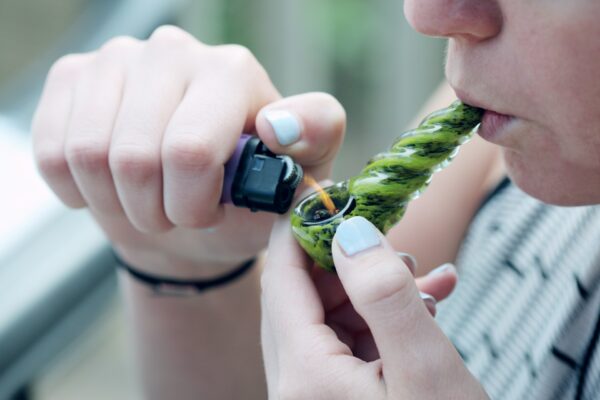Let's get started...
Understanding Tattoo Ink Allergies
Tattoos are a popular form of body art that can express personal identity, commemorate events, or simply be a form of self-expression. As tattoos involve injecting ink into the dermis (the second layer of skin), it is essential to consider potential allergic reactions to the ink used. In the UK, a considerable number of people, including teenagers, show interest in getting inked once they reach the legal age of 18. However, being aware of and understanding tattoo ink allergies can ensure that your experience is both safe and enjoyable. The ink used in tattoos is made of various pigments and carriers which keep the pigment evenly mixed and ensure smooth application. Sometimes, these pigments are derived from metals which can lead to allergic reactions. The most common symptoms of a tattoo ink allergy include itching, redness, swelling, and pustules in the area of the tattoo. These symptoms could appear soon after getting a tattoo or even several years later.Real-Life Impact on Young People
Discovering an allergy to tattoo ink can significantly affect a young person's experience with tattoos. For many youths, a tattoo is not just a form of body art it's a personal statement or a meaningful expression of their identity. Encountering an allergic reaction can not only cause physical discomfort but also emotional distress, particularly if the tattoo is intended to be permanent. The affected skin may look unsightly due to the reaction, which might lead to embarrassment or a decline in self-esteem. Furthermore, dealing with the allergy could require medical treatment and possibly the removal of the tattoo, which can be painful and expensive.Exploring Your Options and Safety Measures
If you or someone you know is considering a tattoo but is concerned about potential allergic reactions, here are some practical strategies to mitigate risks:
1. Consult with a Medical Professional
Before getting a tattoo, consult with your doctor or an allergist. They can offer advice or tests to determine your sensitivity to substances commonly found in tattoo inks, such as nickel, chromium, mercury, or cobalt.2. Choose a Reputable Tattoo Artist and Parlour
Reputable artists and parlours adhere strictly to health and safety codes and use high-quality inks. They should be able and willing to provide detailed information about the components of their tattoo inks.3. Patch Test
A patch test involves placing a small amount of the chosen ink on your skin in an inconspicuous area to see if a reaction develops within a few days. Although not fool proof, this test can reduce the risk of developing a severe allergic reaction to a full-sized tattoo.4. Select Ink Wisely
If you know you're allergic to certain metals or chemicals, ask for ink options that do not contain these substances. Some modern tattoo inks are organic and hypoallergenic, expressly designed to minimise allergic reactions.5. Aftercare and Monitoring
Follow the tattoo artist's advice on taking care of your new tattoo and keep an eye on it for signs of a reaction. Early detection of an allergy can help manage the reaction more effectively and prevent complications.Navigating Treatment and Alternatives for Tattooed Teens
If a reaction occurs despite taking precautions, consult your doctor immediately. They might prescribe medication such as antihistamines or corticosteroid creams to manage the symptoms. Severe reactions might require more intensive treatment such as laser removal of the tattoo.Considering Alternatives
For those who are highly allergic or still feel uncertain, consider alternative ways to express yourself through body art. Henna tattoos (make sure it's natural, not black henna' which can also cause allergies), body paints, and even jewellery can be excellent ways of expressing youth culture and identity without the permanence or risk of tattoos.Conclusion
While getting a tattoo can be an exciting expression of self for many teens, it comes with responsibilities chief among them being the awareness of potential allergic reactions to tattoo ink. By taking informed precautions and approaching tattoos with a clear understanding of the risks, you can ensure that your experience with tattoos is positive and safe. Remember, tattoos are permanent, so it's important to consider all factors before making the decision.How are you feeling?
It is really important that when we need help, we feel able to ask for it. This could be speaking to a parent, a close friend, a teacher or someone else you trust. Sometimes it can be really hard to share our feelings with other people but if we are feeling low or don't know where to turn, sharing with others is really important. Teachers will always take you seriously and listen to your problems in confidence if you approach them for help. Likewise, parents, siblings or friends will help you if you reach out to them.
If you feel like you can't speak to anyone you know, there are people and organisations that can help support you:
- Childline - Call them on 0800 1111 any time of the day or night, every day of the week
- NSPCC - Call them on 0808 800 5000 between 10am and 4pm Monday to Friday or email them on help@NSPCC.org.uk
- The Samaritans – Call them on 116 123 any time of the day or night, every day of the week
- SANE – Call 0300 304 7000 for support (4:30pm - 10:30pm every day)
- Mind – Call 0300 123 3393 (9:00am - 6:00pm Monday to Friday)
*Sometimes we will use real life examples in our articles to aid understanding. When we do, names and ages will be changed.













